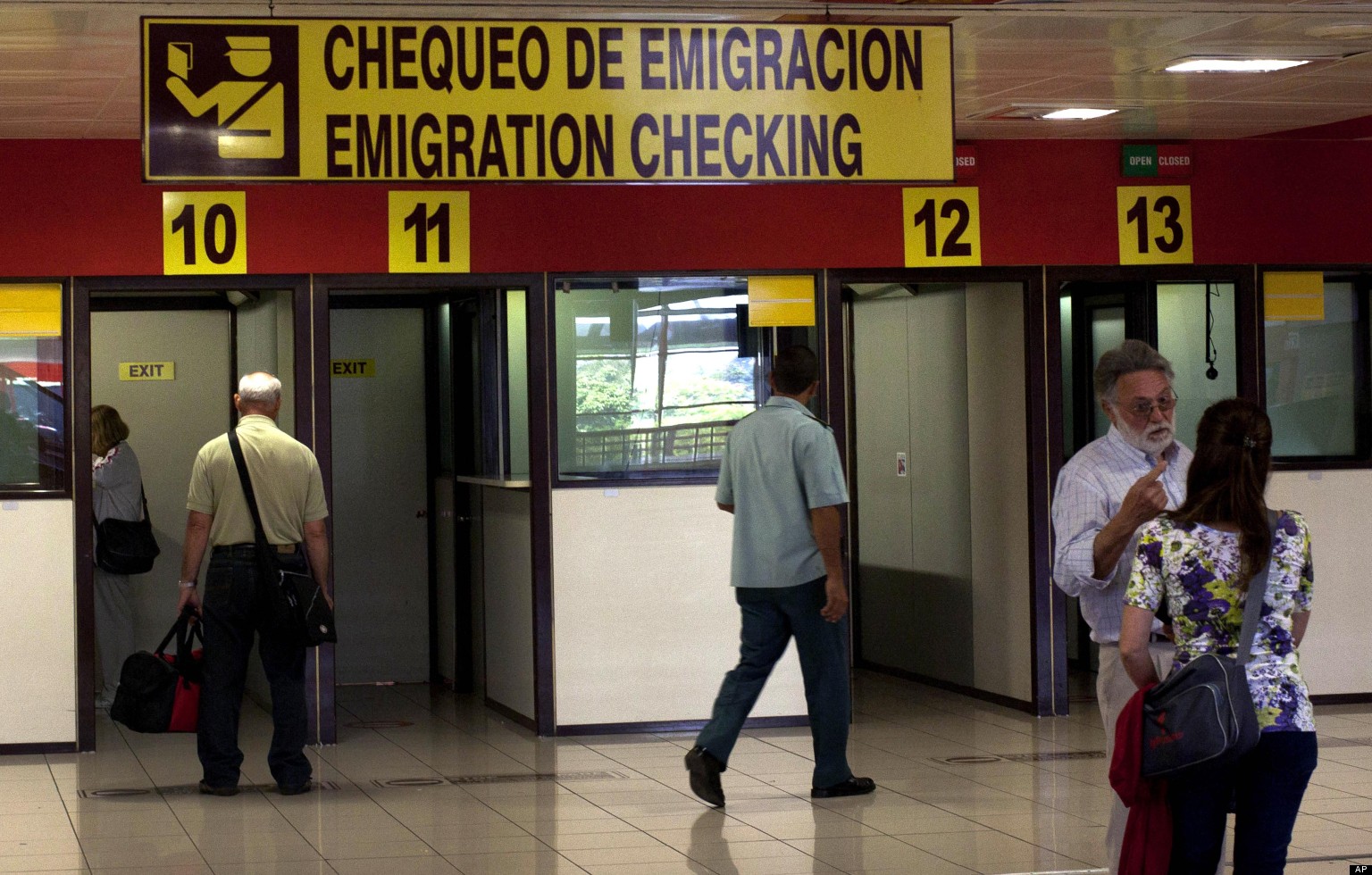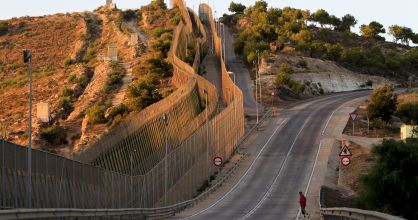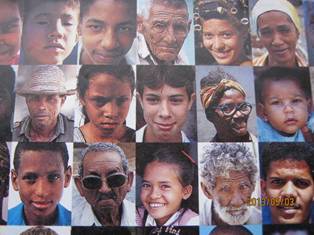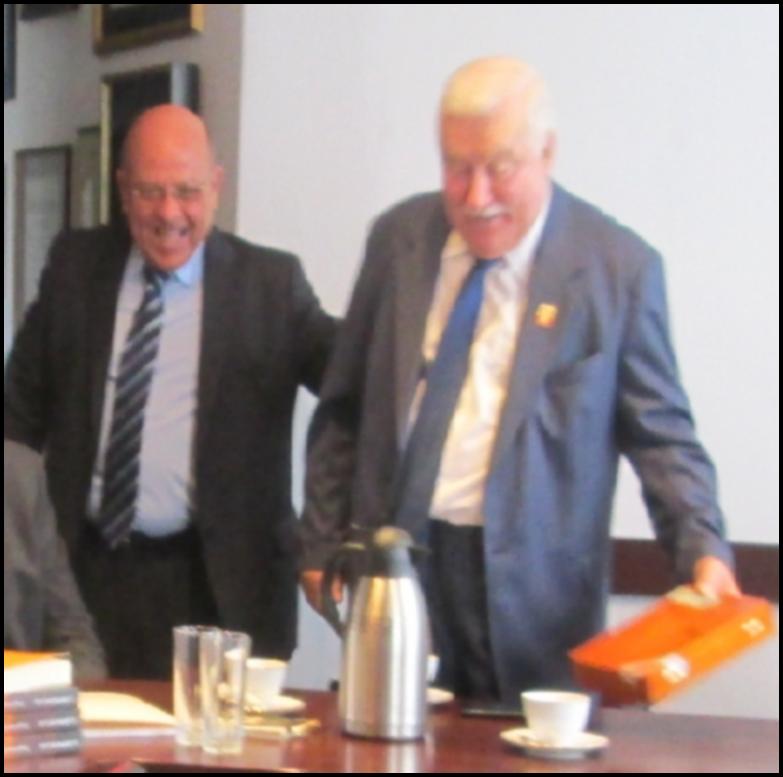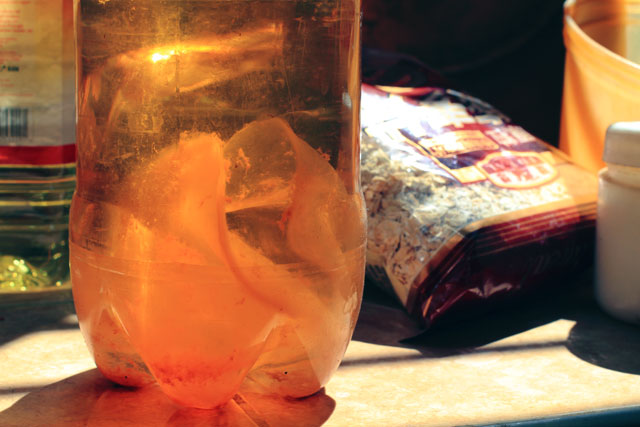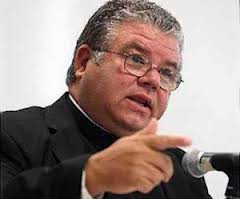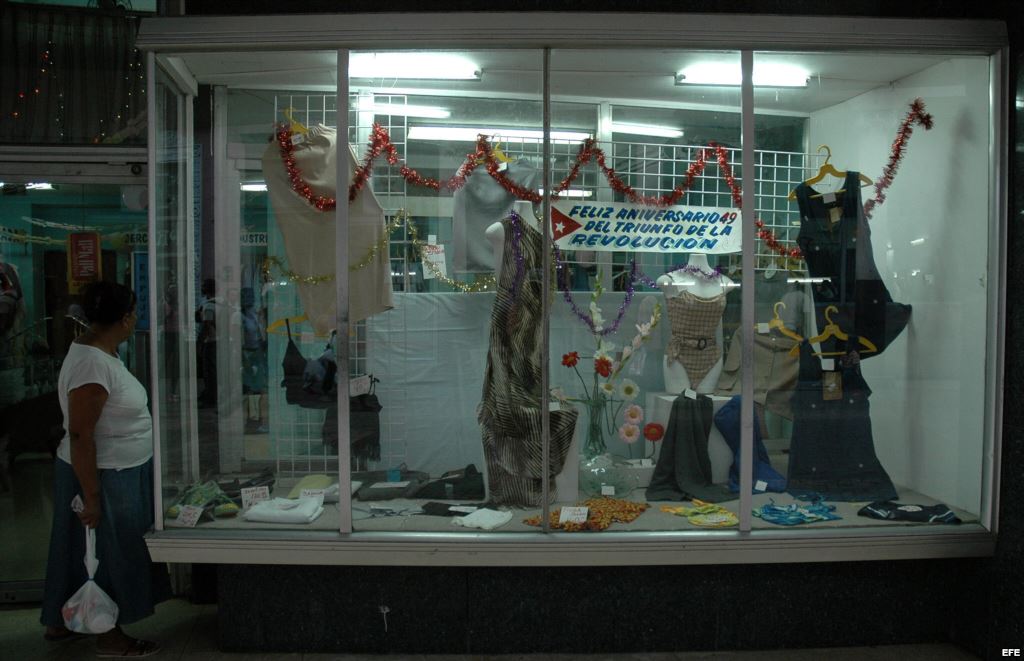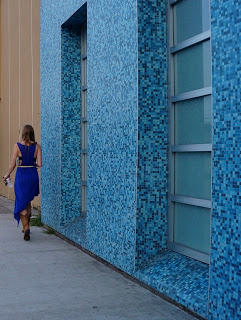This is going to be a long but necessary post. From the La Lima prison, where he currently finds himself serving a five-year imprisonment which the government imposed in a rigged trial in order to condemn him for a common crime that he did not commit, we have received these responses by the writer Angel Santiesteban, dictated to a friend by telephone. [Note: In the time between when this post was written and its translation, Angel has been transferred to Prison 1580]
We ask the readers of this blog to forgive us (for the very long post), but we consider it necessary to publish at the same time these three important items.
In your letter — apparently affectionate and confident — you create the impression that we used to have ice cream together, or we’d go to the movies together or any of those other things done by a couple of friends in everyday life. I’m sorry, but I only recall a few greetings when our paths crossed in some literary events and chance meetings in the city.
Really, what you wrote seems pathetic to me. If I remember correctly, you were only in my house three times…or something like that. One time it was to get a book I was lending you, and the other times when you were looking for a Mexican woman, who I later had to accompany out of your house as she cried uncontrollably. Remember?
If everyone who has written something against me were to submit even a single piece of likely information, something palpable against me, I swear I’d be silent for the rest of my life. But I know they can’t do that. I can say this because professional investigators were after me for three a half years — not only with their cunning, but with their dirty dealings — yet the prosecution failed to present a single solid piece of proof against me to the court.
They could only present conjecture, like my “slanted handwriting.” This makes me think you’re one of the many who have heard bells without knowing from where they toll, because I’m sure your eyes have never seen anything that could convict me in this case. You limit yourself to merely echoing other speakers. You repeat or imagine, but you don’t make anything clear in your ambiguous writing.
It seems that we were close friends, and a few of the words you wrote were spoken as if we were intimate friends, which tended to confuse people and sow doubt. I don’t know why you wanted to give that image, but I would urge you to demonstrate the truth in your words with evidence.
As for Heras and Sacha, since you mention them, I’ll tell you that the first one wasn’t in the country when my ex-wife says the incident occurred, which undermines him as a witness. By that time we had an estranged friendship, because despite our long friendship, he failed to understand my right to express opinions in my blog that were critical of what was happening in my country.
As for Sacha, I always talked a lot with him, but even he was surprised to also hear the version told by the mother of my child. He only had two versions: mine and hers. Nothing more.
Colleague Yoss, every day the media campaign against me grows, it’s to my honor. Have you ever wondered why there’s such dedication? For me it’s clear: I believe this work has been undertaken to attack me because they’re pressured by the injustice they’ve committed, because anyone who gets closer to the facts will find evidence of the crude hoax prepared against me.
Just ask for the proof for punishing me. I want to believe that you’ve fallen into the trap of others, given that in what you’ve written I’ve seen no elements to support your words and assumptions. It’s a shame you’ve behaved like this; but please, when talking about something as delicate as this, proof has to be shown.

Yoss
I don’t know where you got the information about the alleged domestic problems between me and my ex. Could you give me the source or where you got this information? The person you describe has nothing to do with my personality. In fact, in our best times the mother of my son always used to tell me that I “wasn’t in love with her because I didn’t get jealous.” All you would have to do is ask any of my former partners to confirm that I’ve never been branded the jealous type. This was the first time anyone has ever accused me of that.
Hopefully you can get access to the proof that I did in fact present to demonstrate my innocence. These were corroborated by the police experts themselves. Nonetheless — despite them having no solid evidence against me— I’ve been sentenced. I hope you don’t think I’m guilty because of the “slanted handwriting” attributed to me by Lieutenant Colonel Graphologist. As my lawyer proved at the trial and in the appeal, as was supported by national and international law, such evidence isn’t conclusive enough to send me to jail for even one day.
In fact, regarding my not accepting even a fine, I refused to be deprived of the right to be innocent until they proved the contrary. There’s been a lot of writing and signed letters against me, but no evidence against me. That alone makes this legal process and trial unfair and rigged. It only allows the smokescreen of the campaign against me to hide a poor legal process and injustice.
I want to believe that you’re honest and innocent, and that you’re seeking the two sides of the story, the two versions. Do not be misled by personal determinations that trust your instincts. That’s what I want to appeal to in understanding how you’ve dared to consider me guilty.
I still trust you and I know you’ll seek that evidence and then tell me who’s right. I also hope that only after you read everything, you’ll give a true approximation about what really happened in my case.
But don’t be naive. How can you deny this was a rigged trial when they left me without witnesses (five witnesses could have spoken in my defense) because the court alleged a slight contradiction between the testimony of my son and their testimonies?
As has already been shown, there’s no such contradiction. To the contrary, it confirms the testimonies of my witnesses who, nonetheless, were dismissed. That’s called distorting the facts, lying. Then they illegally punished me with a clause that adds more time corresponding to the crime I supposedly committed.
I’m not pleading for mercy. I never will. When I’m wrong, those who know me know that I accept my errors. But being innocent, much less would I ever plead for mercy. I’m only asking for justice, a clean and transparent trial where all of you can be present and judge whether it was rigged or not.
Yoss, it’s simply that no mortal should be punished without proof. They can’t declare me guilty without a single item that affirms this, an element that’s more than the word of my ex-wife (who discredited herself in the trial by committing perjury several times), and her character witness or hearsay.
Looking at this all objectively, it’s not about whether I’m guilty or not. Here it’s about evidence that affirms or refutes. The channels are so clear and convincing that they leave no doubt: I doubt you’ve seen the video of the alleged witness that my ex-wife bribed.
Did you read the testimony of people who assured that I wasn’t even around at the time when my ex says I hurt her? Yoss, in all honesty, I want to trust that you’ll seek out those who can provide you with the legal information presented in the trial and that you’ll get to the truth. You shouldn’t condemn anyone a priori, like you did, it’s necessary to investigate, to first try to get to the truth.
If you’d like to interview my lawyer, I’ll make sure you can. But please, don’t believe anything you don’t find out through your own efforts, and watch out for those who handle and provide you versions that suit the government.
State Security is of course behind everything, just as you somewhat accepted but then contradicted yourself.
I expect your perseverance and questioning, but I need evidence against me, Yoss. I’m sick of just words and innuendo. I don’t want people to take my word; rather in the evidence that was presented. I trust that once this proof is known, all of that will serve to absolve me.
Best regards,
Angel
La Lima Prison, Guanabacoa
Witness, but of what?
Like the maxim of the Cuban writer Amir Valle in his article: ”A stab in the back”: the truth always catches up with a lie.
Before anything I want to make clear that I join any call against the diverse known violations, but particularly this I cannot join because underlying it is an accusation against me personally, totally unjust, which is based on a trial that is not supported except by the declarations of the mother of my child and the testimony of Leticia Perez Gonzalez, whose participated in the trial as and “ear-witness” or reference was limited to repeating the words that her friend told her. Nor could she corroborate whether the events occurred, so that any assumption of her version of events as true is a form of perversion and distortion of the truth and cannot be conclusive.
In my sole, unvarying and repeated statement, I have said that a little after 8 pm my son called my cell when I was in a Masonic session. He let me know that some police had been in my house searching for me. I called an ex-police officer and sister of a friend and neighbor and asked her to find out if there was some mistake.
After a while, she called my cell to tell me that there was an accusation by the mother of my child, and she was alleging that I had raped her. Immediately, I called my editor and friend who lives near the police station, in order for her to talk to my ex and ask her, in the name of our son, to stop that new accusation. It was not the first time that she did it and in the previous trial they felt that she was lying.
I also asked my editor friend to tell her that I was getting an apartment so that they would not be renters because she did not want to live in her aunt’s mansion and it had been sold. Then my editor called me again to assure me that she could not do anything about it, that my ex was stuck on the idea of making the complaint. Five calls were made from my cell, which the police reviewed without finding a single word to compromise me. They also went to the Grand Lodge and reviewed the attendance book where my name appeared with that date.
It goes without saying how detailed they were with my case, trying to find some chink at least to implicate me. They did not succeed.
Even now one would have to ask himself why the doctor who, according to Leticia Perez, received her, did not remember the case or having attended her, although she assured that said doctor told them that my ex had to return with a police officer. All that is recorded in the investigative file.
To top it off, Leticia Perez falls into flagrant contradictions with her friend and mother of my son, who says in her statement, months later, that the Instructor refused to take her to the Forensic Medicine. Which of these two lies?
According to Leticia Perez’s testimony, the mother of my son does not agree to see the doctor because our son would stop seeing me for a space of 25 years; nevertheless, from that moment she prohibited him from seeing me for a space of three and a half years, until my son could escape and look for me in secret. In all that time I could not even approach my son because the Senior officer Pablo had gotten a restraining order. On reading these false statements I remembered and was moved again by the story of Salomon and that mother who prefers the other (the false mother) to have the child in order not to hurt him further.
Another big contradiction: how are her words supported that she did not wish me to be punished by 25 years in jail, and nevertheless, she maintained for more than a month adding new complaints to the initial one? Between all these complaints, which were dismissed later in the process, they added 54 up to years of jail, which is more than double what Leticia Perez say the mother of my son avoided; and she still failed to add the accusation of attempted, on her presenting with her witness, Alexis Quintana, in the police station, which adds 20 years more, which would make a total of 74 years in jail.
It is surprising that the witness presented by the Prosecutor, Alexis Quintana, is spoken of because once more Leticia contradicts the experts who reviewed the video, considering it as spontaneous when he reveals before the camera that he was pressured by the police and bribed by the mother of my son and shows the gifts that she gave him as a bribe. Then if Leticia Perez questions the video, is she assuring that the expert’s report is false? It appears to me a wildness, impudent and malicious, that now they use said witness as proof, after the prosecutor was obliged to dismiss him and had to dismantle his petition for a sentence of 54 years, limiting himself to asking for 15 years imprisonment against me due to the lack of proof of the majority of accusations by my ex.
Also, thanks to the writing by Leticia some doubts are cleared up for me in this respect: I never came to know for sure if it was only a comment or if there really existed that officer called Noriega who the false witness assured had gone before to warn that there would be a fire. They never used that one, I only heard of him by word of the Investigator, but now I understand that it was a way propping up the witness, although I do not know for what motive they dismissed that strategy.
If it were true, this Officer Noriega would have committed several insubordinations, because besides not having skill and having heard the supposed witness, he would have been judged for not testifying and serving as a witness. Or is that the officer refused to lie or that they saw it not very judicious to come to this officer with the witness Alexis Quintana, who has an extensive rap sheet which includes, among other crimes, armed robbery and continuous fraud?
The prosecutor was the one who presented Alexis Quintana as a witness. In the recorded video authenticated by the experts, he assures that he had warned the mother of my son that there was a short-circuit just in the place that was near a climbing plant that served as the roof on the patio and where there were dry leaves. The video is on view on YouTube, and I believe it is sufficient evidence denouncing the terrible irregularities of the process against me.
I remember that as there was an old garage in the basement of the building, it always had oil and gasoline in the sink, in order to throw in the pipes where also, he told me, the sounds of rats were heard. He asked me several times for fuel to dump there. If it’s true that there was the odor of gasoline, maybe that is the reason.
I also want to say that when I started the blog in 2008 I still maintained some relationship as the father of our son. Only later when I began my stable relationship with a known Cuban actress did she begin to criticize and speak badly to my son about my partner. I say this in order to make note of my political position long before her denunciations, and there is a photo in her house that she herself took when the Security broke my arm a few months after the blog was started.
I also want to make clear that no one has wanted “to pass her off as crazy.” As many friends and colleagues know, the mother of my son, since we were in a relationship, was tended by psychologists, and in fact a partner of Francisco Lopez Sacha who also worked in UNEAC took her to a psychologist friend of hers long before we separated.
It was the mother of my son herself who told me that on 1 September 2009 they hospitalized her at Hospital de Dia De Arroyo Naranjo, for two reasons: she did not understand the losses of her grandmother and her marriage. One month before her admission, the denunciations began. She herself also told me that the doctor had proposed hospitalizing her full-time, but as she told him that she had a son and lived alone with him the doctor agreed to treat her on an outpatient basis. They also decided to wait until the 1st of September because July was the boy’s vacation month with me, and he would spend August with her. On several occasions I insisted to the investigator to search that clinical record, but I do not know why he never did so.
My lawyer demonstrates that in the photo of the supposed violence there only existed one graze wound, a type of scratch behind the ear. The witness Alexis Quintana in the video clarifies that it was an herb that the mother of my son rubbed there because it served to irritate her face. And the medical document, as the photo demonstrates, only refers to that light graze, and not as Leticia Perez asserts, that it was on both sides of the face. The medical record also picks up no mark on her wrists or ankles as asserted by the reference witness.
Leticia Perez tries to exaggerate the events without, once more, support from the certificate of recognition, nor by the photo contained in the file. Her words are one thing and the proofs in the investigative file are something else.
I trust those honest Cubans who have joined this Campaign All Against Violence do not imagine the governmental dishonesty that is behind this effort to denigrate my image and to cover up the conviction without proofs with which they have condemned me. I know that many of the signers have not had access to the necessary elements of trial, nor do they possess a means of seeing the video that clarifies by itself and denounces the macabre strategy against me.
Also Leticia Perez, in her statements in the investigative file, contradicts herself: in one statement she agrees that she called me some days before the complaint occurred in order to ask for my help for the mother of my son, who had no money to pay the rent and needed 50 CUC.
Then in another statement, only days later, she asserts that I stole from my son’s mother’s house a quantity of money, a little more than 100 CUC, when some days earlier I had purchased a television for our son for 340 CUC and for 120 CUC a de-humidifier that was in his room. What need did I have to steal that money from her if when she asked I gave it with pleasure and love because I knew that it was for the good of my son? If the mother of my son had money, why did Leticia Perez, as she agrees in her statement, ask me for 50 CUC?
It is also necessary to clarify that the one who asserts that between Major Pablo and Kenia, the mother of my son, there existed an amorous relationship is the same Alexis Quintana, who asserts in the video that he stayed in his apartment. If he had supported the accusations that they made against me, today my sentence would not be 5 years but 54 years.
As my lawyer showed, given my stature and physical constitution, it is impossible for her to have a light scratch on only one side if the blows that she related were with both hands and with a closed fist on both sides of her face.
I cannot deny the shame that I feel on reading this defense. Human miseries are so numerous that I feel revulsion towards everything regarding this plan against me. It hurts so much to see my name vilified. It hurts so much to have to show at each step that I am innocent. I have achieved more than my Investigators, because my friends managed to undo the false witness. My thanks to God for bringing us light to film that person.
With respect to the video that Leticia Perez describes it does not agree with or approach reality. Alexis Quintana, besides not being threatened, having made two different videos, nor filmed reading a paper as she asserts trying to pervert reality, because I was informed by the Investigator that she saw the video, so why discredit it describing scenes of reading that she did not see?
In the end, Leticia Perez asks the same questions as I: Why did they delay the process? Why didn’t they gather more evidence, more real proof if they spent three and a half years trying to do so?
I know how delicate the matter is. All of us who hear an injustice feel the waking of our instinct of solidarity. That’s why, in this case in particular, they have wanted to proceed in the least transparent manner.
There is only one truth: I am innocent and I have been sentenced without proof. My witnesses were disqualified by the trail court, and then I was condemned by a mistaken article. I only ask for a fair trial; in that I will consider myself absolved. We just need justice in this country to access my petition.
A guilty person might have taken advantage of the opportunities to escape that presented themselves to me. I have said, and I repeat, that I wanted to stay knowing what would happen, but it is enough that I know that I am innocent to confront the injustice.
I feel more free in this jail than in Miami. From here I mock those who think they avenge themselves on me. I am freer than they, and I will await justice at any time, even after finishing this unjust sentence. One day the bright light of truth will come, and many will lower their heads because they consciously or unconsciously lent themselves to this crime that is committed against me.
Angel Santiesteban, La Lima Prison, Guanabacoa
To Redress a Wrong
By Luis Felipe Rojas
A couple of weeks ago, my friend, the poet Rafael Alcides, published Acknowledgement of Receipt; a way of airing the case of Angel Santiesteban Prats. I responded to him immediately: You are mistaken, Teacher….” Alcides sent me this text which I want to share with you all apropos of the opportunistic response of the eight Cuban writers, affiliated with UNEAC, on the occasion of the International Day of the Woman.
Here is the complete text:
Dear Luis Felipe: Alcides gave me this assignment, but there is no visible mailing address to make the letter get to you, that’s why I leave it here for you. On my blog today I published about Angel.
A hug,
Regina Coyula
Havana, March 2, 2013
From Rafael Alcides
To Luis Felipe Rojas:
My friend Luis Felipe:
Regarding the treatment of teacher that you give me in replying to my opinions about the recently butchered Angel Santiesteban, I will respond to you as Nicolas Guillen would have with his mischievous custom of town people: “You are the teacher more than I.” As for as the reply, you leave me confused. Either I do not know how to express myself, or you read hastily. Let’s see.
I say on entering the subject that it is not a political case, I add ironically an “I have heard” that one could not fail to notice, and I proceed to demonstrate that indeed it is a political case, but I show it without editorializing, conforming to the method of the poets of all times: leaving it said without saying it in an express manner so that it endures, so that the wind does not blow it away at least before it is read again, what Hemingway defined with the seriousness of he who was reclaiming right of discovery, “Theory of the Iceberg.”
But truthfully, I speak of marital disagreements magnified to the extreme of punishing our friend and excellent writer Angel Santiesteban with five years in jail, in its origin a private situation of that interminable list of things and domestic cases that fed our grandparent’s mockery, and then I pause to consider what the government now could do to release him.
Unshooting the one shot fired in error or for state reasons used to be done by previous governments, those that come after the fallen government, never the governments that committed the execution. Aware of this important lesson of history, I did not mention possible solutions for the government, ways out with which we would both win. We, recovering our Angel and the government, what is going to happen, reserving for now the romantic role of knight with lance ready who come out to defend the honor of a lady.
You have to play the cards you are dealt, Luis Felipe. Unfortunately, Angel’s case is much more delicate than that of the 75 at the beginning of the century. Then everything was very clear, then the accuser was the government; this time, unfortunately, “I insist, unfortunately,” the accuser is Angel’s ex-wife, the mother of his son, “a son who is now 15 years old,” and that woman, that mother lied, yes, that woman, manipulated from the beginning or not, searched for false witnesses, fabricated marks of a beating rubbing her face with irritating leaves, perhaps, she spoke of death threats, fires, finally, friend Luis Felipe, that woman so in love that she would prefer to see her ex-husband burning in the bonfire before seeing him with another, put those people at the table, and they, of course, avid, greedy, as customary in these cases fallen from they sky when least expected, swiftly sat down to eat.
These are the facts. God could not change them now. Moving heaven and earth to get Angel is how much we can do for the moment, to go to speak with God if it is necessary (and I believe it is), without stopping insisting, of course, each with his tongue, that our friend is innocent, that a case was fabricated, but knowing that while his ex-wife does not contradict herself, they, the jailers, will be the good ones and Angel is the bad one. That is the situation.
Finally, Luis Felipe, I do not usually argue with the reader, I respect his turn, but you are not a reader, coming out in defense of Angel with the passion with which you have done it on replying to me, you become part of myself given that I am also Angel, in this moment all of us who are in favor of getting Angel out of jail are Angel, that why I am explaining myself to you while admitting that yes, that maybe, that perhaps I have not made myself understood.
Because of your exceptional and unique character, this is a private delivery in the first instance, but only in the first instance, let’s say an homage to your person, by which you are authorized to publish on your blog or wherever it might seem convenient for you, that is to say useful for Angel.
I am one of those who think that honest men do not have one speech to walk and another to leave, as happens with shoes. They have one, in my case, this from now on continues being the speech that you answered day before yesterday when I alone stopped seeing the point between the frozen crests in the immensity of the sea.
I embrace you, and again thank you for loving Angel as you do,
Rafael Alcides
Translated by: mlk.
16 March 2013
 “On the evening of Friday, June 7, the historic leader of the Cuban Revolution, Fidel Castro Ruz received comrade Diosdado Cabello Rondon, President of the National Assembly of the Bolivarian Republic of Venezuela” Juventud Rebelde reported a few days ago.
“On the evening of Friday, June 7, the historic leader of the Cuban Revolution, Fidel Castro Ruz received comrade Diosdado Cabello Rondon, President of the National Assembly of the Bolivarian Republic of Venezuela” Juventud Rebelde reported a few days ago.
